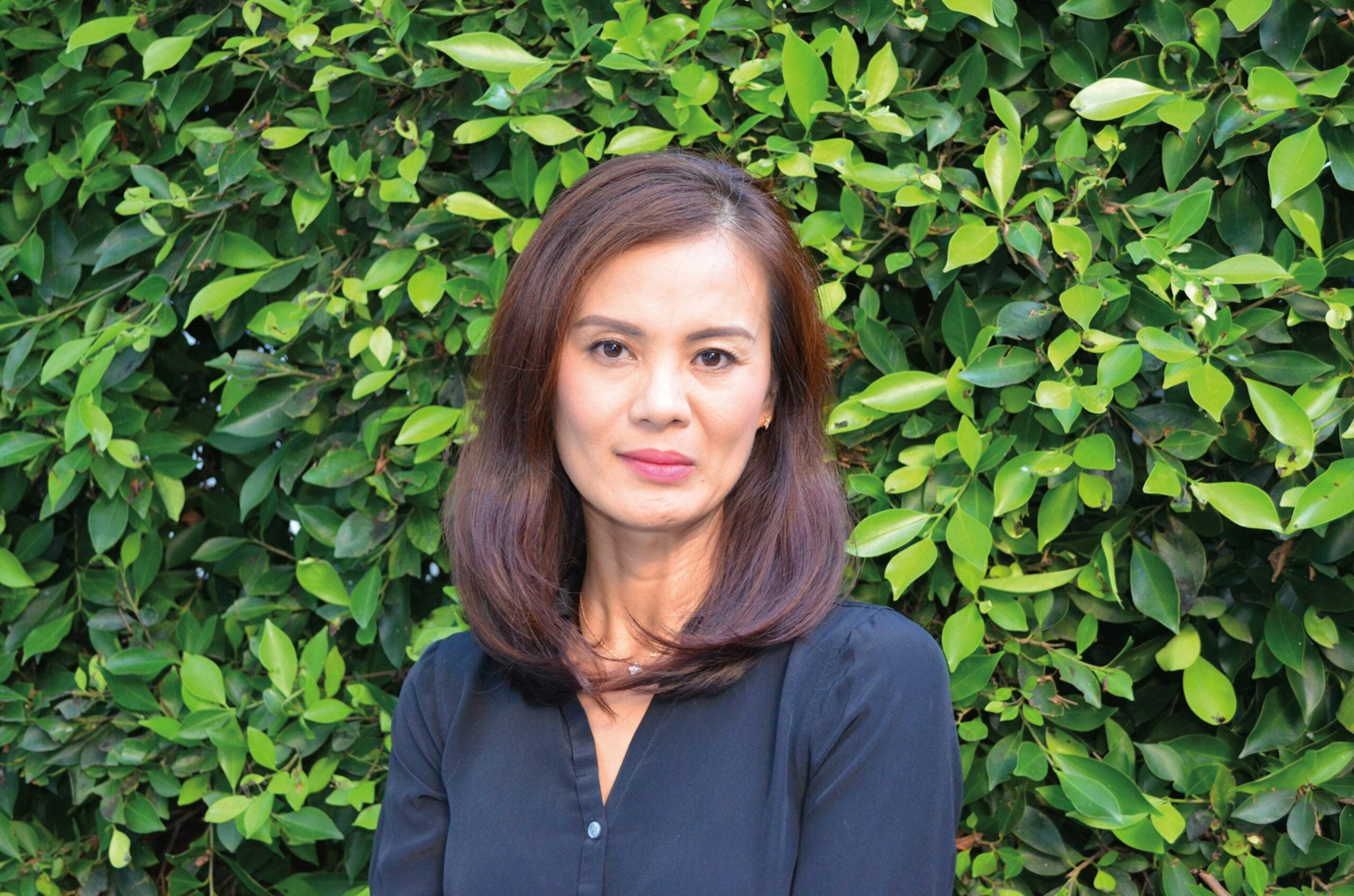Thuy Vo Dang, assistant professor of information studies, discusses how memory work and archives will enhance K–12 learning, with ways to preserve and empower marginalized communities with teaching about identity, based on primary sources.
While speaking to middle and high school students as the co-author of the 2022 book, “A People’s Guide to Orange County,” Thuy Vo Dang has found that young people are interested in archives as a concept, even if they don’t exactly know the pre-digital meaning of the word.
“They hear the word ‘archive’ and they usually think it means putting a couple of photographs on your computer and putting it in a folder,” says Vo Dang, an assistant professor in the UCLA Department of Information Studies. “They don’t really understand the nuance and complexity of what archival studies is and what memory work really means, like the stakes of that work for your community … empowering your community to have a voice in history books and in narratives that we tell in public about ourselves, our families or communities.”
Professor Vo Dang is currently working on a project funded by the Wallace Foundation to assess the needs of BIPOC-serving arts organizations in preserving their history, with UCLA colleagues Michelle Caswell, professor of information studies, and Tonia Sutherland, assistant professor of information studies.
“So much of community history is located in these arts institutions, and they are even more underfunded than the mainstream arts organizations,” Vo Dang says. “Their operating budgets are so small that they sometimes don’t qualify for these larger grants, and so to really understand and address their needs, we needed to do field research.
“This past year, we surveyed 113 arts organizations across the country that serve Black, Indigenous, People of Color communities, from dance to visual arts,” she says. “A lot of these organizations felt like when they [worked] with universities, academic researchers, or students who are sent to intern with them, they often wouldn’t support anything that was sustainable for these organizations in preserving their histories in the long run. It was always a one-and-done situation, so there’s a lot of mistrust of institutions that continue to inform the way that BIPOC arts organizations operate.”
Professors Caswell, Sutherland, and Vo Dang are co-directors of the UCLA Community Archives Lab, which matches students with community archives such as the Chinese Historical Society, the El Monte La Historia Historical Society and Museum, and the Texas After Violence Project. The students, who are trained in community archiving principles, work on projects to help catalog, preserve, and exhibit the holdings of these archives.
“Before sending them out to partner with these arts organizations, we need to understand what the organizations’ unmet needs are,” says Vo Dang. “We’re focused on the organizations, how to serve them, and how to train our students while doing that.”
Professor Vo Dang is serving on a UCLA Information Studies committee to develop an undergraduate degree program, and says that, “The urgency is getting the work we do in information studies and archival studies to translate to a much younger audience than we’ve been able to do so far through our graduate program. That’s one step, scaling from graduate studies to undergraduate studies. And then for me, even younger audiences are really important to engage.”
Vo Dang is about to do just that. She was invited to write a chapter on Vietnamese American history for “Foundations and Futures: Multimedia Textbook on Asian Americans and Pacific Islanders.” Led by the UCLA Asian American Studies Center, the textbook is aimed at ninth grade to early college and is being created with a $10 million grant from the California State legislature. Vo Dang, who used digital primary source materials that include refugee artwork and oral history interviews, is excited about the project and says it is a true collaboration between higher education and K–12 educators, including STEM and history teachers. The textbook’s commitment to teaching about the complexity of identity is evident in the assignments, many of which are based on primary sources such as refugee art. Vo Dang says that these materials particularly resonate with younger learners.
“It’s both art history [and] history … that really captures the lived experience, the feelings and the sentiments of people who are escaping a war-torn country,” she says. “When you teach about refugees, what you’ll find is there are a ton of records that exist on refugee communities because they tend to be over-documented by state actors, by governments, by the United Nations, and all of these larger external forces … these are top-down records and were not created by these communities. They do not capture how individuals actually lived through, coped with, and survived these moments.”
Professor Vo Dang underscores the inquiry-based connections between how students in the UCLA Department of Information Studies are trained in the archival fields, and how those same points of inquiry translate to K–12 education.
“It’s the sense of social responsibility that you want to instill [in students], that they have a role to play in knowledge production and the dissemination of knowledge,” says Professor Vo Dang. “And it leverages what students already have in their possession—that you kind of pull out a little bit more—which is curiosity.”
Read the full story in the Winter issue of UCLA Ed&IS Magazine.
